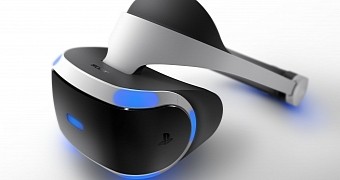It seems that the team at Sony in charge of the Project Morpheus technology is aiming to launch the PlayStation 4-linked virtual reality device before the month of June 2016, trying to make sure that it closes the gap with the other major competitors in the field.
The information comes from a Japanese newspaper called Asashi, translated by Kotaku, and it's unclear whether the publication is only talking about the Japanese date for the release or if the platform will arrive at the same moment on a global scale.
There's no reaction from Sony to the report yet, but the company will probably abstain from commenting, as it seeks to finalize its plans and make an official announcement later on.
Project Morpheus is a headset that will allow gamers to experience virtual reality in PlayStation-launched video games and will also introduce new features to the home console.
Sony has suggested that it will make at least one major announcement about it during the coming E3 2015 event and that it might also reveal one big title that will support its launch.
Analysts are expecting the release to take place in the first half of next year, but the VR solution might be delayed in order to improve its quality.
Sony has recently announced the formation of a new studio in England that will deal exclusively with virtual reality titles, although no first project linked to it has been revealed yet.
Project Morpheus will have to compete with Oculus Rift and Vive
Sony is not the first company to bet big on virtual reality as one of the technologies that could push the video game space forward in the coming years.
The teams at Valve and HTC have announced their own device, called Vive, which is set to be introduced before the end of the year and will also include a special set of controllers.
Oculus Rift, on the other hand, has recently talked about the system requirements for its virtual reality solution, which will be available in the first half of next year and was backed by a very large number of people on Kickstarter.
All the devices mentioned might have some long-term problems, not because of their hardware limitations but because they might lack necessary support in the form of interesting video game experiences.

 14 DAY TRIAL //
14 DAY TRIAL //